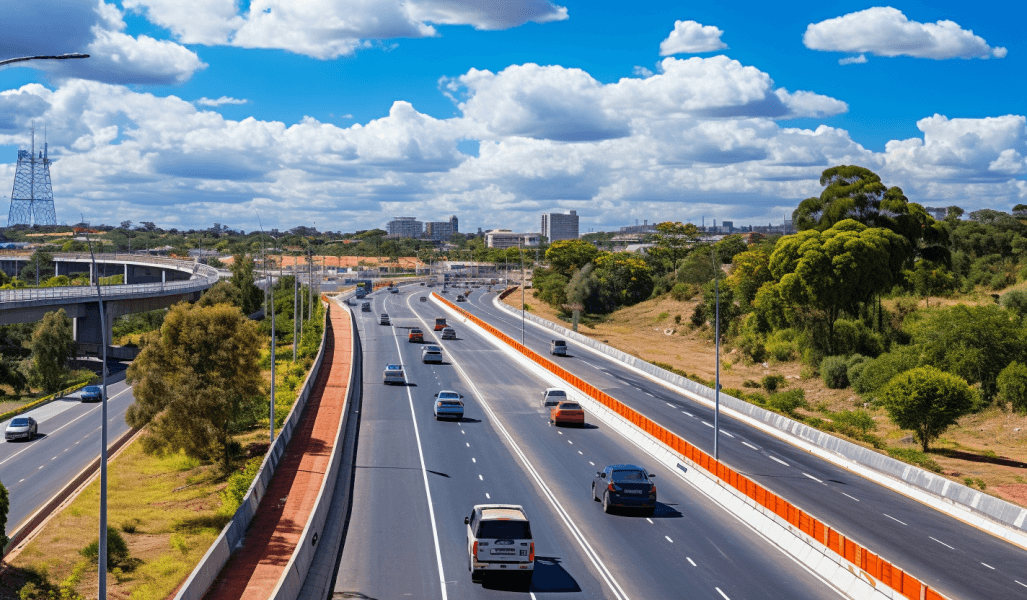Since its inauguration a year ago, the Nairobi Expressway has become a central hub for daily commuters, connecting Nairobi’s urban center with the Jomo Kenyatta International Airport.
The Nairobi Expressway is a 27 kilometres toll highway that starts from Mlolongo passing through JKIA and Nairobi’s CBD to the James Gichuru junction along Waiyaki Way.
In this article, we’ll assess its viability, and whether it has lived up to the expectations set.
Table of Contents
Viability of the Nairobi Expressway
The Nairobi Expressway has proven its viability and sustainability over the past year:
- Traffic Statistics: Since its opening, over 17 million vehicle trips have been made on the expressway, with an average of 60,000 vehicles using it daily. The exponential increase in traffic compared to its initial period of operation demonstrates its viability.
- ETC Usage: Electronic Toll Collection has become the dominant payment method, with 75% of users opting for ETC, compared to just 27% one year ago.
- International Interest: Delegations from other African countries, including Tanzania, Zambia, and Nigeria, have expressed interest in studying the successful management of the Nairobi Expressway for potential use in their own countries.
The Expressway’s Impact on Daily Commuters: A Mixed Bag
As the Nairobi Expressway continues to redefine transportation in the city, there’s no denying that its toll system has become an integral part of the equation.
READ ALSO: The Busiest Roads in Kenya
While the convenience of escaping traffic jams during peak hours comes at a relatively small cost, we must confront a pivotal question: Has the presence of the expressway genuinely reduced traffic congestion on crucial routes like Mombasa Road and Waiyaki Road?
A Clear-Cut Reality Check
In candid terms, the answer remains a resounding “No.”
For residents living along these major arteries, the promise of smoother journeys and reduced travel times has not fully materialized. Traffic congestion remains an ever-present challenge, and for many, the expressway’s toll fees remain a barrier to daily use.
Meet Kevin, a daily commuter who shared his perspective with us: “I’m faced with a daily dilemma. Either I wake up at the crack of dawn to beat the traffic or swallow the pill of toll fees. While I’ve noticed a slight reduction in congestion, it’s far from the game-changer we hoped for.”
A Lifeline to the Airport
Conversely, the Nairobi Expressway has proven to be a lifeline for individuals heading to the airport.
Take Ian, a Nairobi resident, for example. He recounts a recent journey: “We were running late for a flight, but I wasn’t panicking. I knew I could access the expressway from the Museum Hill entrance, and we’d reach the airport in roughly 20 minutes. In fact, we made it even quicker, thanks to the faster drive.”
Navigating the Way Forward
So, what lies ahead? Should the government reevaluate toll prices to encourage more frequent use?
Could there be incentives to entice more commuters onto the expressway?
These questions linger as we reflect on the expressway’s ongoing impact.
Time, as they say, holds the answers. As the Nairobi Expressway continues to mature and adapt to the city’s evolving transportation needs, stakeholders may need to explore innovative solutions to make its benefits more accessible to a broader spectrum of commuters.
Whether through pricing adjustments, incentives, or other measures, the pursuit of a more traffic-free Nairobi remains a journey in progress.
In conclusion, the Nairobi Expressway has emerged as a transformative infrastructure project for Kenya, easing traffic congestion, promoting economic growth, and setting an example for effective public-private partnerships.
Its remarkable success in the past year, with over 10 million vehicles passing through, solidifies its position as a vital component of Nairobi’s transportation network.
As the expressway continues to evolve and expand, it is poised to play an even more significant role in Kenya’s development and connectivity.



